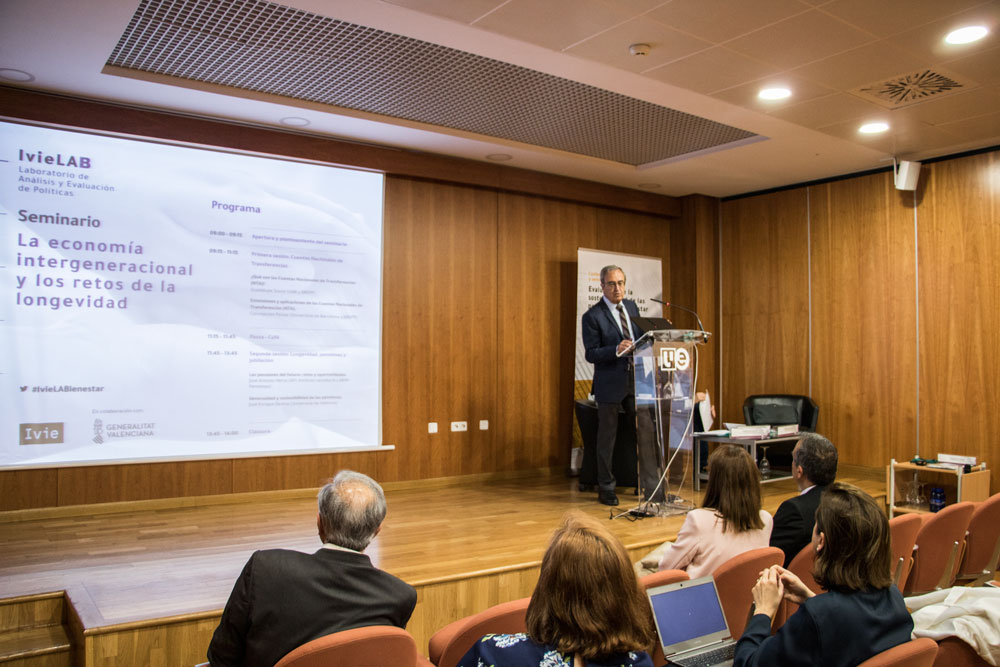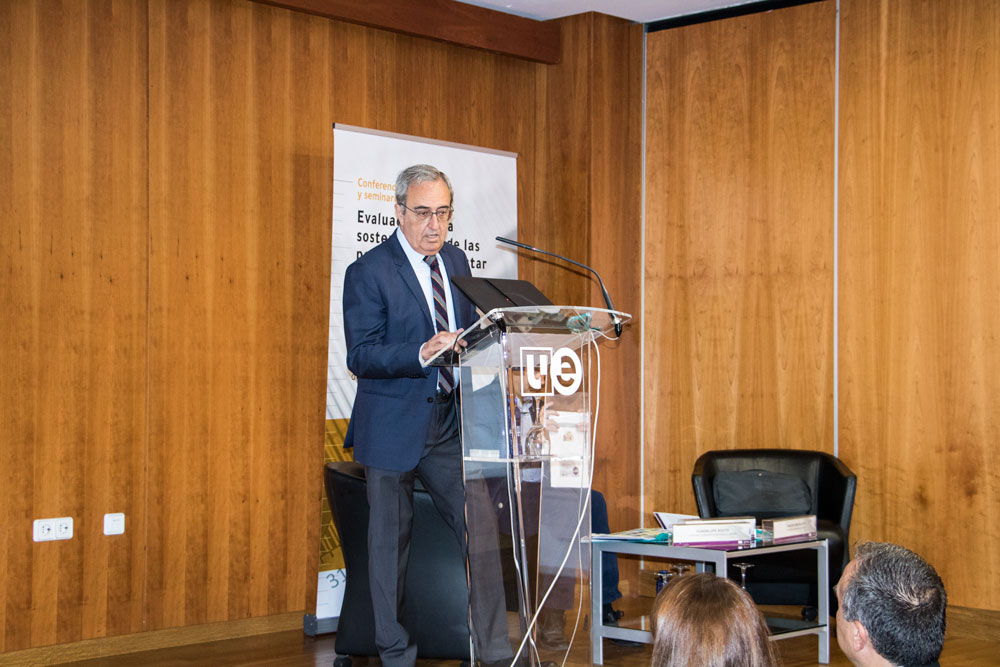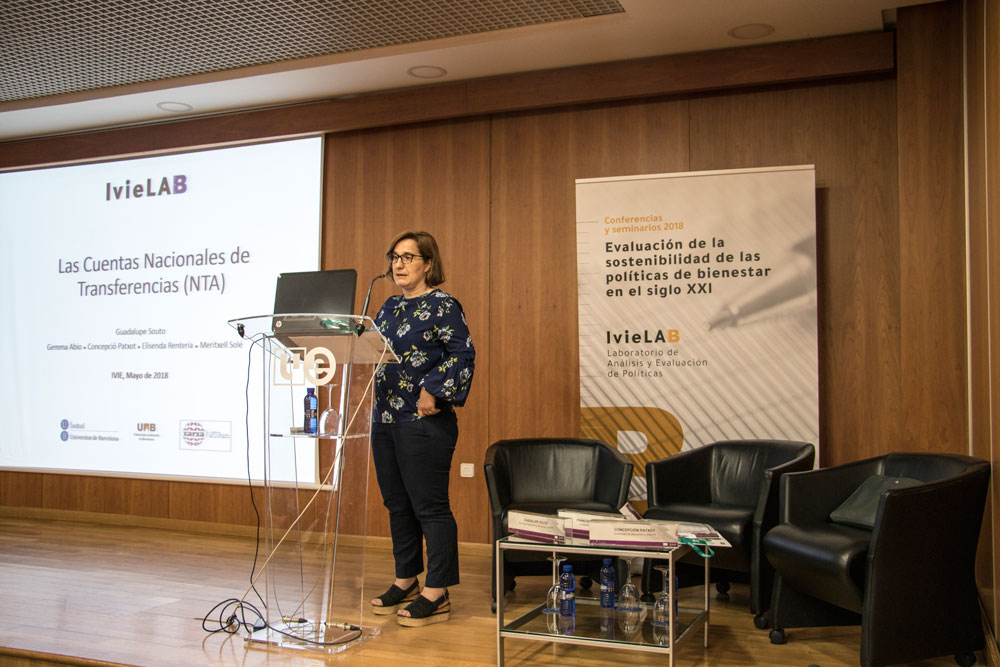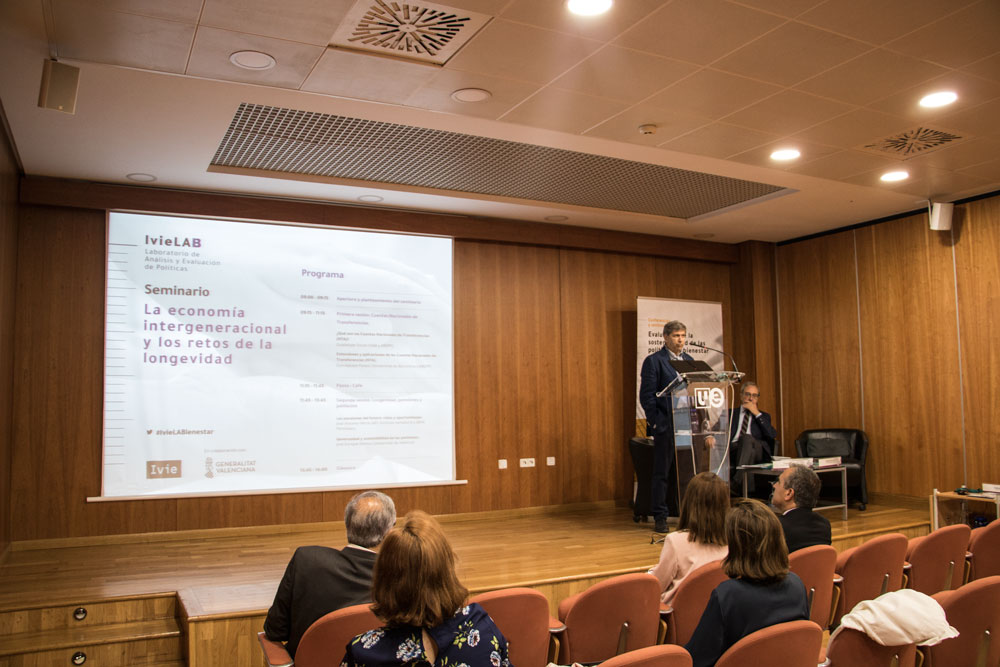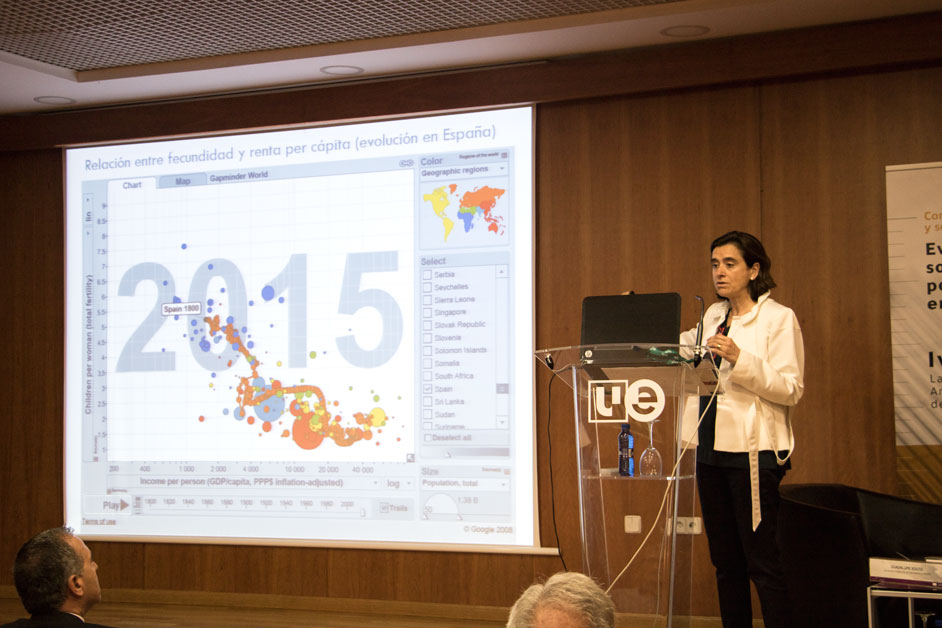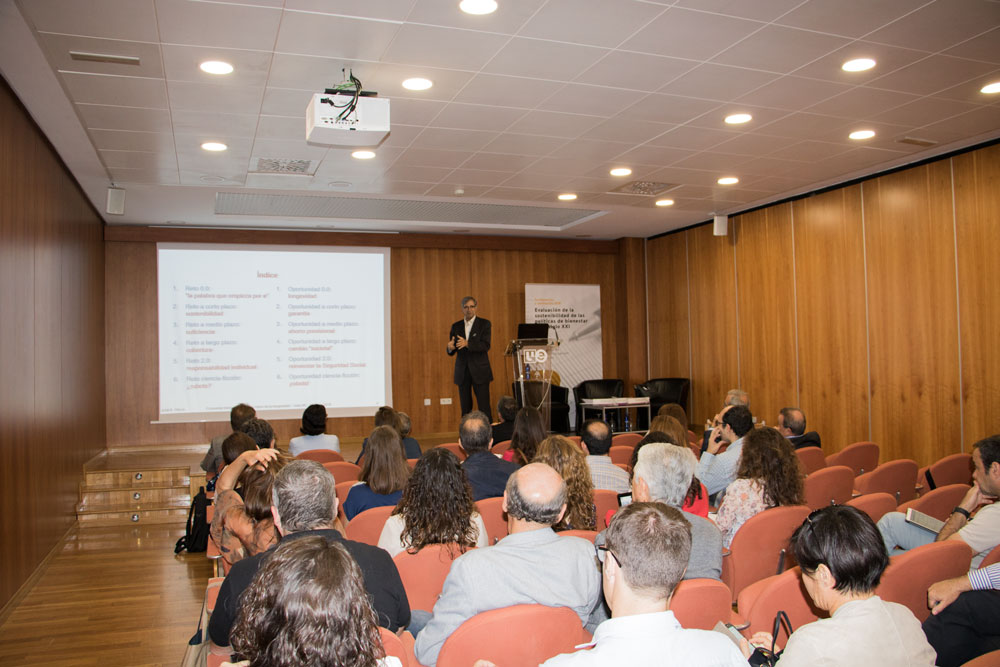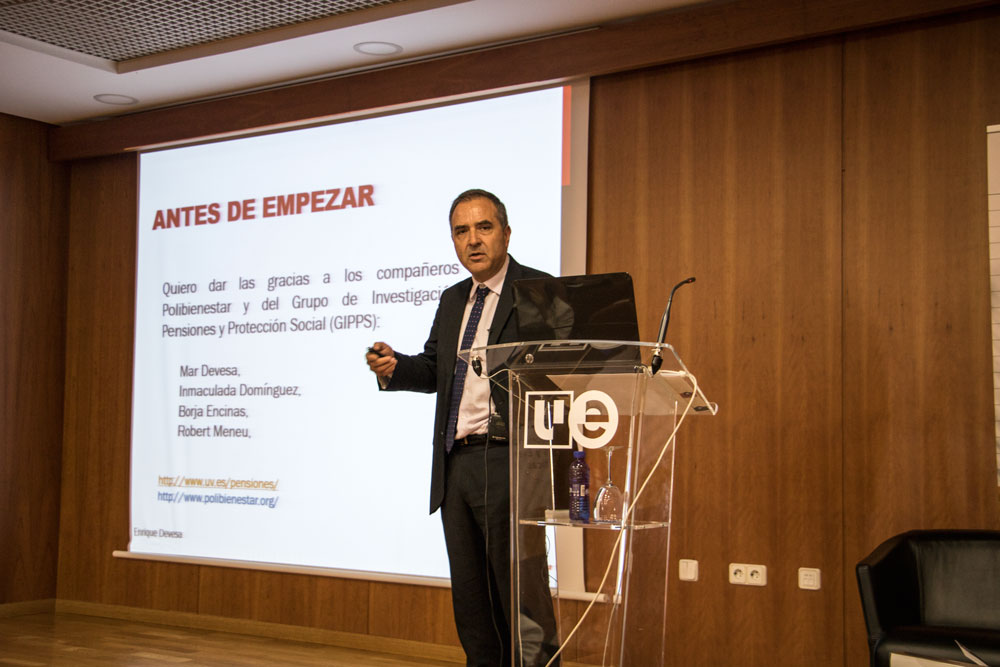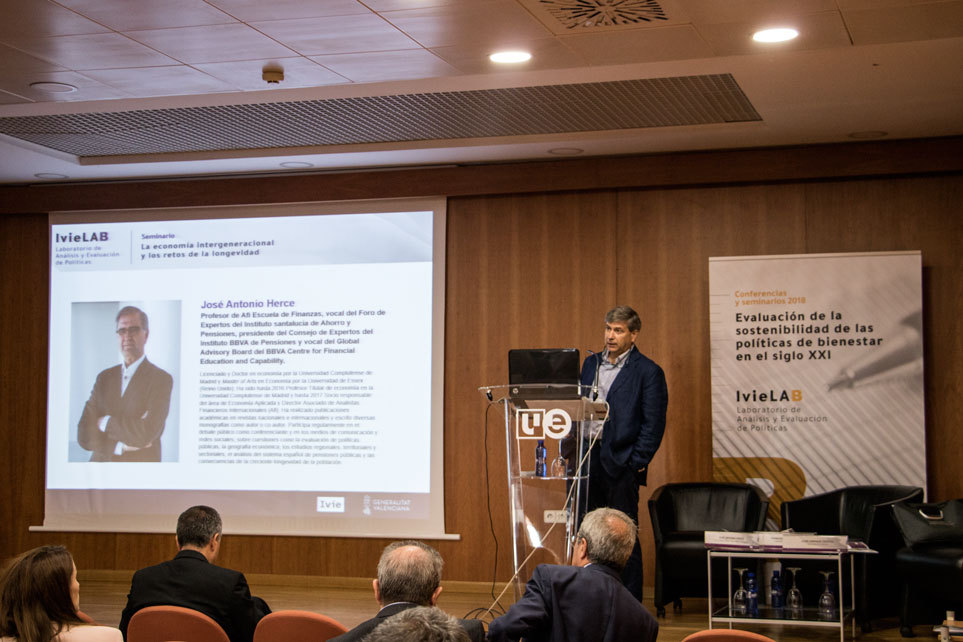News

J.A. Herce: "The problem with the pension system is our resistance to raising the current retirement age of 65"
Another economist, José Enrique Devesa, confirms that the Spanish pension system needs 3.4 million more people contributing to the social security system to maintain sustainability
IvieLAB (Laboratory for the Analysis and Evaluation of Public Policy) brought together four experts in the field of intergenerational economy at the seminar The intergenerational economy and the challenges of the aging population to discuss the effects of increasing life expectancy in the Spanish population on the sustainability of the welfare state. José Antonio Herce, an economist specializing in pensions at AFI, Instituto santalucía and BBVA Pensions, highlighted the global problems of sustainability, sufficiency and coverage of pensions, with special attention to two specific problems that affect Spain: the extension of coverage, which in his opinion, is overly generous, and reduced income levels as a result of the crisis.
Herce argued that advancing longevity will add further complications to the sustainability of the pension system from 2030 onwards. It is his view that “we must plan our savings to supplement a future [state] pension that may not be as high as we would have liked”.
He also pointed out that the Spanish social security system is one of the most generous in the world, since the pensions paid are higher than the amount contributed by the beneficiary. According to his calculations, 12 years after retirement, pensioners have recovered 100% of the contributions they made during their working lives.
The AFI economist concluded that the problem with the pension system is “our resistance to raising the current retirement age of 65, especially when the data show that life expectancy increases by two months every year”.
Also participating in the seminar, which is part of the IvieLAB program on the evaluation of the sustainability of welfare policies in the 21st century, was José Enrique Devesa, Professor at the University of Valencia, who stated that “currently, the Spanish pension system needs a further 3.4 million people contributing to the social security system to maintain its sustainability”.
In addition to a double session that analyzed the Spanish pension system, the seminar also included two presentations on the national transfer accounts, which consider the structure of the population by age to determine a person’s contributions or needs at each stage of their life.
Guadalupe Souto, Professor at the Autonomous University of Barcelona and researcher at XREPP, explained that this new system for analyzing the national accounts includes the age dimension in an attempt to explain how a person manages their resources throughout their life, via the market, the family and the public sector. “Between the ages of 23 and 60, a person pays more in taxes than what they receive through public transfers, while between the ages of 0 and 23 and from 60 onwards, they receive more in benefits than what they contribute to the State”. Souto also highlighted gender differences in measuring individuals’ contributions. As she explained, women work longer hours than men, but their income from work is lower because throughout their lives, women dedicate more time to the non-market sector by caring for family members, domestic chores, and so on.
In addition, Concepción Patxot, Professor at the University of Barcelona and Director of XREPP, explained how demography can affect the future of pensions. “In 2050, for every active worker there will be 0.66 pensioners, twice the number for 1996 when there were 0.25 pensioners per active person”. For this reason, Patxot insists that “the so-called ‘sandwich’ generation must be protected, as these are the people who will have to pay for the pensions of the baby boomers of the 60s, while at the same time raise a family, if they are bold enough to have children”.
The program of conferences and seminars on the evaluation of the sustainability of welfare policies in the 21st century, organized by IvieLAB, continues on June 25 with the seminar The pillars of wellbeing in the 21st century: Lessons from the 20th century, offering a rigorous analysis of the factors that have supported the progress of income and wealth in Spain throughout the 20th century, and reflecting on its present and future sustainability.



